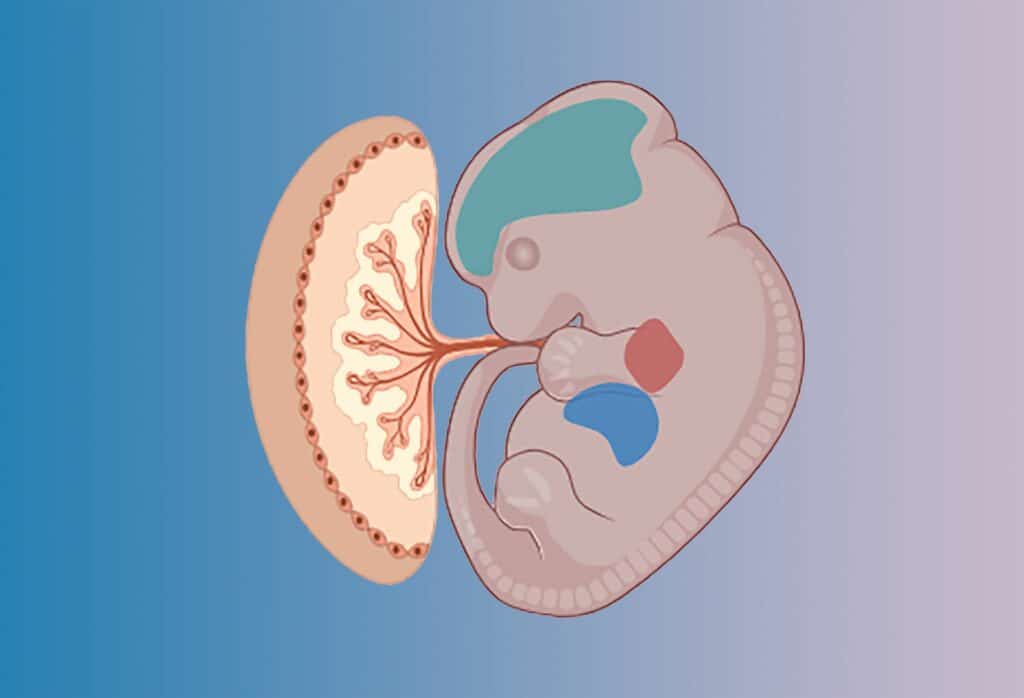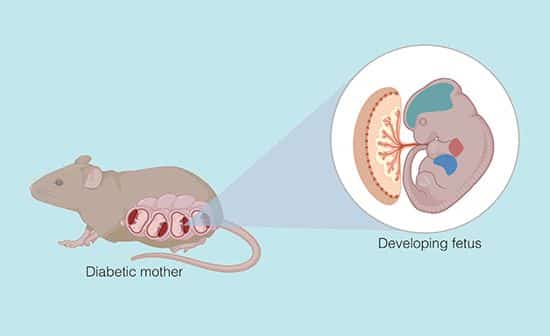UCLA scientists studied how higher glucose levels affect fetal tissue metabolism using a technique they developed. They traced carbon-13 in fetal tissues during pregnancy. The published paper, “Atlas of Fetal Metabolism During Mid-to-Late Gestation and Diabetic Pregnancy,” in Cell, reveals the impact of maternal hyperglycemia on fetal tissues.
Pregnant women with uncontrolled diabetes face risks like preterm birth and stillbirth, with increased chances of congenital brain and heart defects in their babies. This foundational study opens avenues to understanding how maternal blood glucose levels influence fetal metabolism during development in the womb.
UCLA researchers used a mouse model mimicking diabetic pregnancies to study the impact of higher glucose levels on fetal tissue metabolism. They pioneered a technique, in utero carbon-13 tracing, to track metabolites in the placenta, fetal brain, heart, and liver during mid-to-late gestation.

The study focused on common metabolites and conducted a broader analysis of those undergoing significant changes during development. This research sheds light on how elevated glucose levels affect fetal metabolism, providing insights into potential impacts on human pregnancies with diabetes.
This study lays the groundwork for understanding diabetic pregnancies and fetal health during mid-to-late gestation, a crucial period for organ development. The researchers demonstrate how metabolic profiles shift as fetal organs form and how metabolic activity changes in fetuses of diabetic mothers.
The data generated is a valuable resource for future studies on fetal metabolism, particularly in diabetic conditions. These findings pave the way for research aimed at identifying targeted treatments to improve the chances of diabetic mothers delivering healthy babies.

The UCLA study establishes a crucial foundation for investigating the impact of maternal diabetes on fetal metabolism and development. By pioneering innovative techniques and generating comprehensive data, the research not only sheds light on the intricate relationship between maternal diabetes and fetal outcomes but also provides a valuable resource for future studies in this domain. The groundwork by UCLA researchers holds promise for identifying targeted interventions and improving outcomes in diabetes-related pregnancies.
Journal reference:
- Cesar A. Perez-Ramirez, Haruko Nakano, et al., Atlas of fetal metabolism during mid-to-late gestation and diabetic pregnancy. Cell. DOI: 10.1016/j.cell.2023.11.011.
